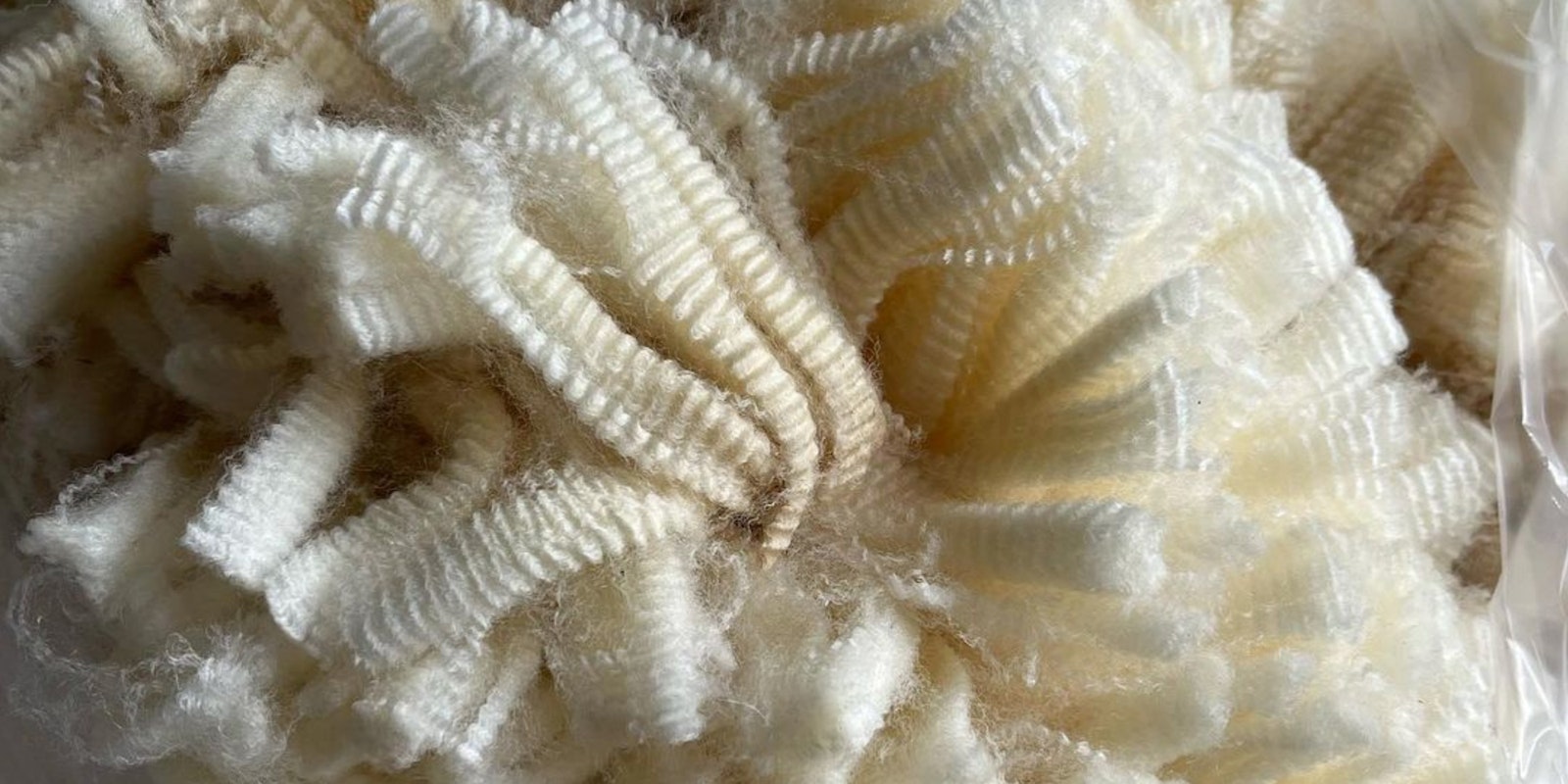Welcome to our series Meet the Sheep! We love hearing about sheep from the shepherds who raise them. These important perspectives can help us better understand the wool we spin and the people, animals, and landscapes that create it. Check out the series to meet more woolly friends. —Editors
The amazingly adaptable Corriedale was developed simultaneously in Australia and New Zealand around 1874 by crossing Merinos with the Lincoln breed and then stabilizing that cross through many years of careful breeding. Stockmen recognized the utility of Corriedale sheep as they spread around the world, reaching the United States in 1914. That special combination of meat quality and versatile, medium-grade wool draws both farmers and spinners to our storied breed.
But that’s not all. When you start a flock of Corriedales, you’ll discover the joy of working with a gentle, medium-sized sheep. They are so easy to work around the barnyard, or through a commercial raceway,that they are ideally suited as a youth project or a range animal. Kids love Corriedales, and the breed makes a perfect introduction for first-time shepherds of all ages!
 Monty the ram, cleaned up for a show. Corriedale shepherds typically wash only the “socks” of both ewes and rams, leaving the rest of the fleece in its natural condition.
Monty the ram, cleaned up for a show. Corriedale shepherds typically wash only the “socks” of both ewes and rams, leaving the rest of the fleece in its natural condition.
What Is a Classic Corriedale?
The classic Corriedale has a black nose and feet, a chalky-white face, and a generous wool covering on top of its head and down the legs. They are known the world over as “heavy-cutting” sheep, and the volume of wool you get is closely associated with that wool cover on the extremities.
You will know you have a real Corriedale fleece in hand by its spectacular style and shine. Great Corriedale wool will be between 25 and 32 microns (some rams may go higher) and have very long staple length for that grade. Incredibly, it feels even softer than it looks. The mark of great Corriedale wool is the extremely well-defined crimp, which in the United States has become known as a “crinkle-cut fry” appearance.
 The Ruppert flock is coated most of the time. Here, Geof is inspecting a ram fleece during the growing season.
The Ruppert flock is coated most of the time. Here, Geof is inspecting a ram fleece during the growing season.
Handspinners will find the wool to be immediately spinnable in the grease. Just flick the ends and start spinning. Watch it wash up sparkling white every time! Use it to make everything from sweaters to suits. Corriedales are a huge hit with sheep-to-shawl teams since the ewes are easy to shear, and the final product can be done on time with impressive handle for the judges. When looking for a classic Corriedale fleece, expect a white, soft, super crimpy and lustrous fleece you won’t want to let go of!
Shepherds should look for Corriedales to be medium-sized sheep, with ewes weighing 130 to 180 pounds and rams 175 to 250 pounds. The breed is known for its ability to thrive under a range of conditions, from rainy to very dry climates, and to survive in high altitudes in South America. In the United States, you can find Corriedales from Maine to Washington state and from North Dakota to Tennessee.
If you are starting a Corriedale flock, you should expect good Corriedales to be hardy and long lived, producing lambs annually up to eight years old or more. Avoid the show trend of tall, rangy individuals if you want a true, rugged Corriedale and you will be rewarded with an easy-keeping, good-natured friend!
 Three-week-old Corriedale lambs
Three-week-old Corriedale lambs
The Ruppert Flock and Classic Corriedales
Our Pennsylvania flock was founded in 1976 on Midwestern bloodlines. In 2000, I was able to attend the World Corriedale Congress when it was held close to home in Ohio. Shepherds from the southern hemisphere had fleeces on display, and this was my first exposure to what is often referred to as classic Corriedale wool with its incredible luster, length, and fineness.
In 2001, my family and I decided to turn to Australia for traditional genetic material. I wanted to go back to the roots of the breed. The flock remains closed to outside genetics except for imported semen and serves as a source to reinvigorate the breed in this country. We continue to improve our genetics, shear a lot of fleeces, and spread the word about this remarkable breed.
Geof and Barb Ruppert raise Corriedale and finewool commercial sheep near Gettysburg, Pennsylvania. Also a veterinarian and banjo-player, Geof judges wool shows around the country. Follow Geof on Facebook and Instagram to meet more of the flock.

